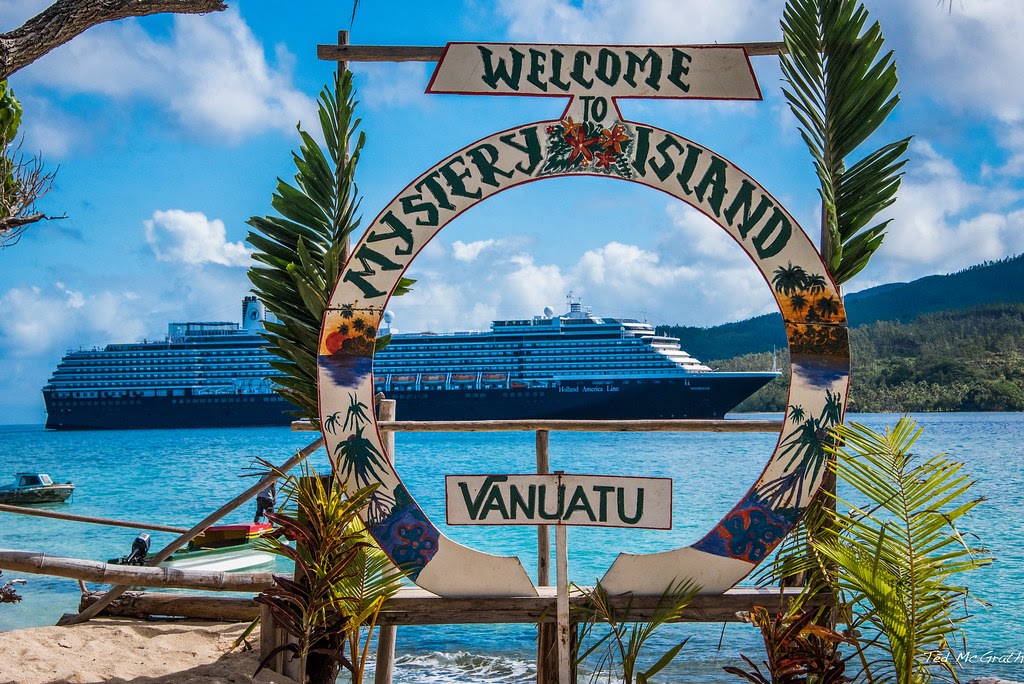Illustration by Emily Rubin.
“Anye impietie may lawfully be committed in love, which is lawlesse.”
–John Lyly, Euphues
Lyly’s adage—commonly uttered as “all is fair in love and war”—implies that conflict is as inherent to human nature as love and that rules don’t apply. The proverb also reflects realist theory, which believes states are rational actors that seek to maximize their relative power. However, the intrinsic connection between state and human behavior can be best exhibited through contestants on competitive dating reality shows.
Love Island is a risqué dating show in which a dozen young people are stranded in a luxury island villa for eight weeks. The “Islanders” aim to be in a heterosexual couple at the end of each week; if they are not “coupled up,” they are out. Those who survive the summer can win £50,000 ($100,000 in the American version) if they are the viewers’ favorite couple.
Participants primarily wear swimsuits, share a bedroom stuffed with six king-sized beds, and engage in debaucherous challenges created to provoke conflict within the budding relationships. Love Island is marked by its cheeky commentator Iain Stirling and its comedic self-awareness. Viewers can embed themselves into the island’s reality—as the show airs six nights a week—becoming easily invested in the contestants and their pursuit of “love.”
Part of Love Island’s appeal is that attractive people compete to form the most popular couple. That said, since the series premiered in 2015, only thirteen couples have stayed together post-production, five of which are from the most recent season. So “alliance” may be a more appropriate description than “couple.”
While the application of war theory to human behavior may seem outlandish, principles of self-preservation underlie both human behavior and state action during war.
Neorealist political philosophers like Kenneth Waltz believe that “the structure of the international system, not the particular characteristics of individual great powers, causes [states] to think and act offensively and to seek hegemony.” Under this philosophy, all states are rational actors that act to maximize their power relative to other states. Thus, Love Island’s competitive nature results in Islanders aiming to maximize their power.
John Mearsheimer based his neorealist theory of state behavior on five key assumptions: the international system is anarchic; great powers can destroy one another; a state can never be sure of another state’s intentions; the main goal of major powers is survival; and great powers are rational actors who think strategically about how to survive in the external environment.
On Love Island, contestants engage in similar conduct.
As Shaughna confesses her feelings for Luke M. to his partner, her behavior corresponds with Mearsheimer’s theory. While there are strict behavioral rules for contestants, the competition itself is disorderly due to a lack of higher authority—like the anarchic international system. Couples can form or split at any moment, so being in a relationship doesn’t guarantee safety. Participants can never be certain of their partner’s intentions and are often unsure of whether their relationship is genuine.
The main goal is to stay on the island and win the prize. Thus, contestants must act strategically to maintain their relationship and become the audience’s favorite match—whether in the name of love or not. To achieve such popularity, contestants behave strategically, not unlike states in crisis.
The tragedy of power politics is that state interaction is typified by fear, self-help, and power maximization, all of which impede international cooperation. States fear each other because they cannot trust each other. They aim to maximize their relative power to ensure their safety and resilience. In the same vein, because states cannot trust one another, alliances are temporary and fragile. Mearsheimer argues that “even when a great power achieves a distinct . . . advantage over its rivals, it continues looking for chances to gain more power.”
An increase in one couple’s popularity comes at the cost of another’s. The Islanders are also at risk of their partner leaving them. Contestants often enter new relationships with people they are not interested in just to ensure their safety. Not unlike members of the Warsaw Pact or the North Atlantic Treaty Organization, Islanders are continually confronted with the possibility of being couple-less. Participants are incentivized to engage in multiple relationships to create self-serving alliances that protect their position.
Relationships are also temporary and fragile because Islanders constantly seek more popular and strategically sound relationships. In the clip above, Jess and Mike break up after Mike attempts to maximize his standing on the island by forming a relationship with another girl. Despite being in a relationship with Jess, Mike seeks to gain an advantage over his fellow contestants by forming a new relationship.
Mike and Jess’s failed relationship indicates another element of state behavior: self-help. States always act in their own interest by looking for opportunities to take advantage of others. This aim explains the final element: power maximization.
States employ calculated aggression; they consider the balance of power and how other states will react to their moves before taking action. When states have a substantial advantage over their rivals, they behave more aggressively. Those who lack this power will not consider offensive action because they are “more concerned with defending the existing balance of power from threats by their more powerful opponents,” according to Mearsheimer. Islanders who are sure of their partners’ attachment to them are more likely to behave aggressively than those who are concerned with maintaining their existing relationships.
Calculated aggression is particularly evident during Love Island’s contentious recouplings, as Islanders are incentivized to couple up with those who will maximize their ability to survive.
For example, Callum describes his relationship with Shaughna as “play[ing] it safe” and instead pursues a relationship with Molly. Shaughna criticizes his behavior, believing that he was aware that she would not partner with a new boy. Their argument reveals calculated aggression; Callum, knowing Shaughna would not shift the balance of power by entering a new relationship, chose to pursue Molly.
Shaughna and Callum’s argument also represents the security dilemma, which John Herz coined and Mearsheimer applied to war theory. Herz asserts that the actions states take to increase their security decrease the security of other states. Thus, a rational actor will not cooperate with another—even if that may be in their best interest—because there’s no trust between parties. The security dilemma also heightens tensions between states in alliances because of the principles of state behavior.
The security dilemma is primarily applicable when Islanders have equal bargaining power; however, the show’s producers often add contestants to create conflict. When they introduce a new girl, the other women lose their bargaining power until the next recoupling. When there are more women than men, matching theory suggests that the men will leave their partners for the women they prefer.
Love Island is notorious for putting winning couples into a security dilemma. These couples must decide whether to split the prize money. If they both agree to split, they each take half the money. If one chooses to keep the money and the other chooses to split, the former gets the prize. If both try to keep the money, neither receives the prize. The show is built to stoke conflict until the game is over.
The potential financial gain from the show makes it serious for contestants. On the surface, contestants are compensated £250 a week and the winning couple receives the prize. But their average income grows exponentially, with those who last on the show earning the most. The finalists make an estimated £2.3 million in the five years after they leave the show. These gains lured almost one hundred thousand applicants in 2020—all for only thirty-six spots. Getting on the show is challenging, meaning contestants take the game seriously.
It may be inconceivable that a dating show can juxtapose the complex nature of war theory with that of human interaction in a high-stakes setting. However, Love Island does just that, exemplifying the parallels between human nature and war theory by simulating central elements of social interaction: the desire for safety, power, and wealth. Mearsheimer and other realist thinkers seek to outline the structure of nation-states within an international system, but inadvertently denote key sociological facets. The game of love is ultimately the game of war.



